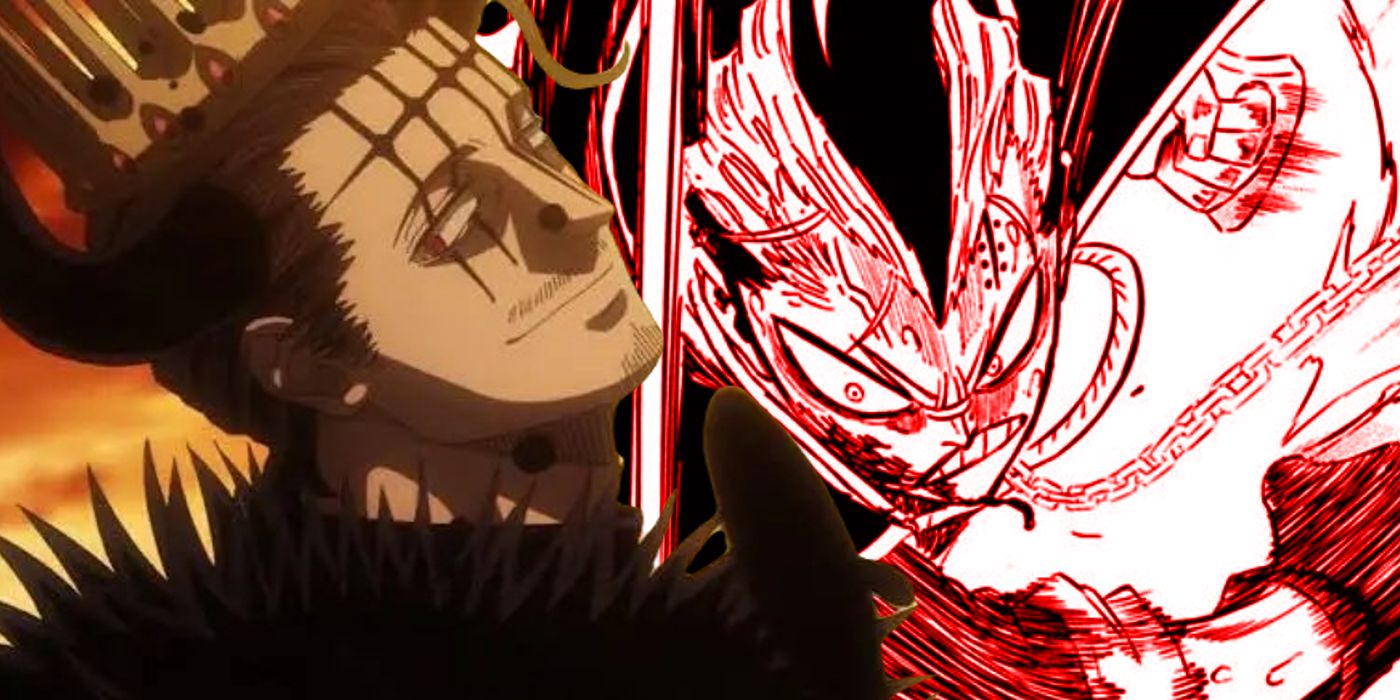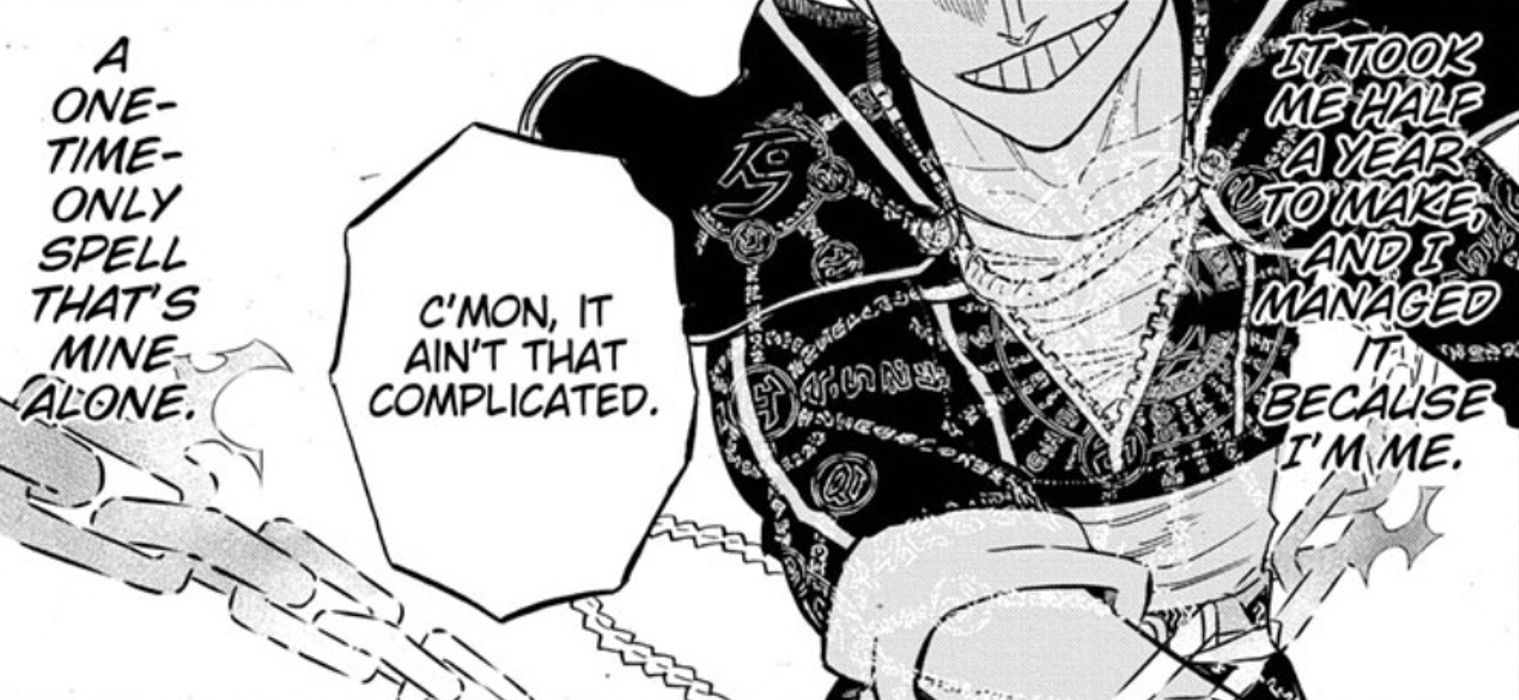Warning! Minor spoiler ahead for Black Clover chapter 320!
A longstanding formula that usually results in shonen series leaving their weaker characters in the dust was recently shattered by Black Clover so effectively that other mangaka should attempt to emulate it as soon as possible.
Usually written as long-spanning epics, shonen generally gifts readers more time with their favorite heroes, culminating in intricate relationships and deeper philosophical mindsets. This is usually a good thing, but the longer these manga go, the progressively weaker their weakest characters get, thrusting B-list heroes further away from the spotlight and leading into yet another boring cliche. Meanwhile, the main protagonists just continue to amass more power and even more time on center stage, resulting in static writing with the same outcomes transpiring again and again. But in chapter 293 by mangaka Yūki Tabata, the notoriously weak Magna Swing becomes instrumental in defeating a major villain.
At the time, the Clover Kingdom was facing devil hosts from the Spade Kingdom known as the Dark Triad. Powerful mages including Yuno and even some captains were having difficulty defeating them. But Magna somehow confronts and defeats one of the Dark Triad, Dante Zogratis, host of the King of all Devils Lucifero. Magna doesn't accomplish this by unlocking a special power or undergoing some rigorous training that makes him suddenly better than everyone else - which is another stagnant trope commonly used in shonen. In fact, Magna is a peasant and therefore doesn't possess anywhere near as much mana as members of the nobility or royalty do - or even commoners, for that matter. Instead, he learns from an experienced peasant who found ways to be relevant. It just involves more work. Because Magna can't use runes, he must work with weaker runes for six months to build a spell that can only be used once. And the spell Magna casts connects him and Dante with a chain that depowers the villain, eventually forcing the Dark Triad member to resort to regular attacks.
Some manga have tried to break from this formula like Black Clover recently did but failed. Probably the most relevant example took place in Dragon Ball Z's Cell saga with Tien. Tien was essentially a throwaway character since he couldn't compete with the power of a regular Super Saiyan. But he ends up using his Neo Tri-Beam to keep the newly evolved Cell in a giant hole, preventing the villain from absorbing Androids 16 and 18. In the end, Tien can only blast Cell back into the hole so many times before he loses too much energy, forcing Goku to rescue him. Although Tien plays a major role in keeping Cell from reaching his perfect form, he just delays the inevitable. Tien doesn't successfully prevent Cell from absorbing the two androids, nor does he defeat Cell. In the big picture, his contributions were minor, especially when compared to Black Clover's Magna Swing.
Mangaka Yūki Tabata found a creative way to make one of his side characters relevant in a manner that outperformed his stronger heroes. Magna actually defeated a villain that his betters couldn't beat - and not in the stereotypical way. Magna isn't more powerful after his altercation with Dante, either. He can't even use the same spell again unless he devotes six more months of his life to recreating it. Essentially, Magna had to contend with Black Clover's true message that he was born into a lower sect of society whose members possess less mana, forcing him to work exponentially harder than others just to obtain 15 minutes of fame. And no other shonen manga has been able to replicate that dynamic or has even come close - yet.


